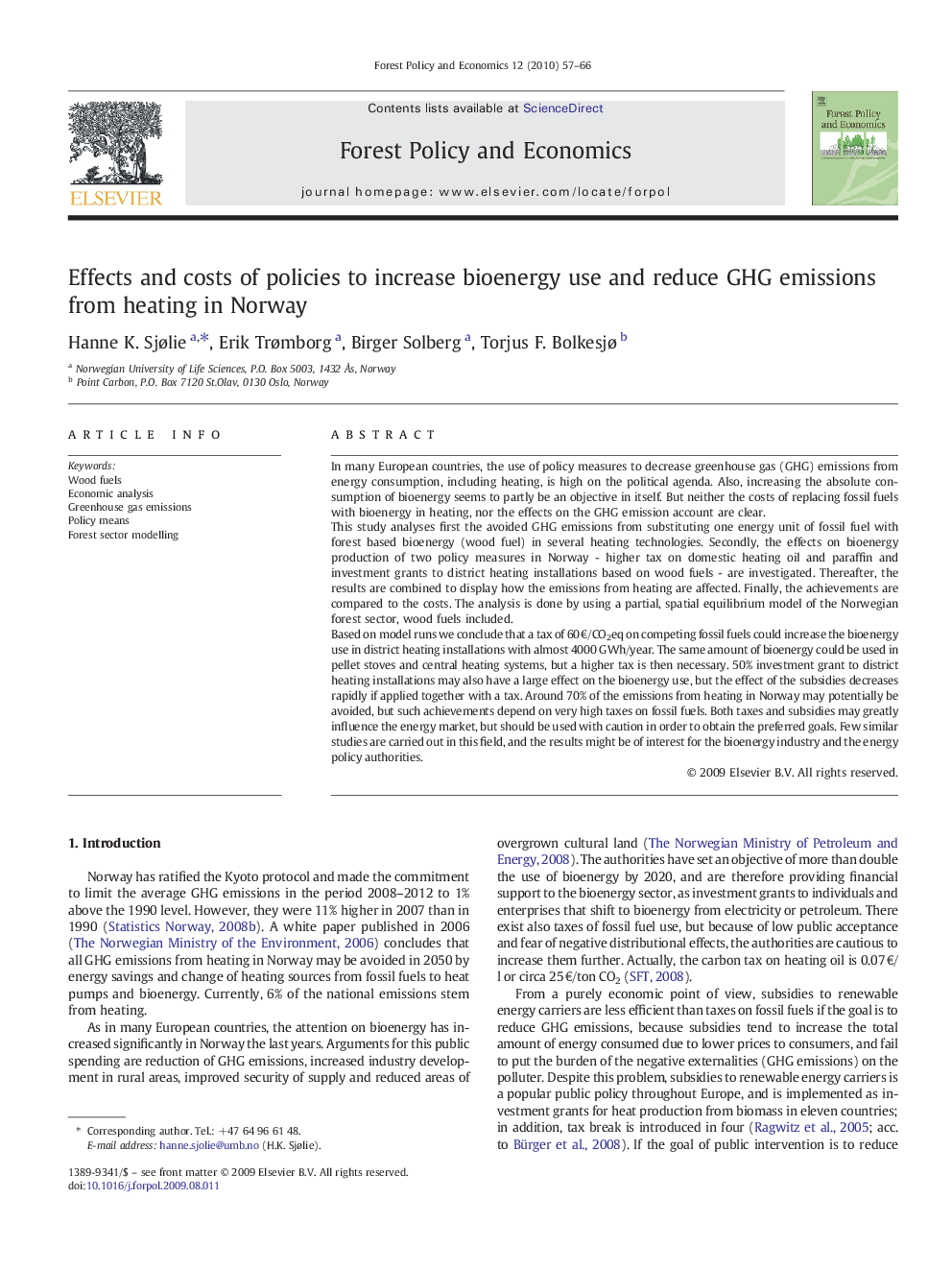| کد مقاله | کد نشریه | سال انتشار | مقاله انگلیسی | نسخه تمام متن |
|---|---|---|---|---|
| 91692 | 159831 | 2010 | 10 صفحه PDF | دانلود رایگان |

In many European countries, the use of policy measures to decrease greenhouse gas (GHG) emissions from energy consumption, including heating, is high on the political agenda. Also, increasing the absolute consumption of bioenergy seems to partly be an objective in itself. But neither the costs of replacing fossil fuels with bioenergy in heating, nor the effects on the GHG emission account are clear.This study analyses first the avoided GHG emissions from substituting one energy unit of fossil fuel with forest based bioenergy (wood fuel) in several heating technologies. Secondly, the effects on bioenergy production of two policy measures in Norway - higher tax on domestic heating oil and paraffin and investment grants to district heating installations based on wood fuels - are investigated. Thereafter, the results are combined to display how the emissions from heating are affected. Finally, the achievements are compared to the costs. The analysis is done by using a partial, spatial equilibrium model of the Norwegian forest sector, wood fuels included.Based on model runs we conclude that a tax of 60 €/CO2eq on competing fossil fuels could increase the bioenergy use in district heating installations with almost 4000 GWh/year. The same amount of bioenergy could be used in pellet stoves and central heating systems, but a higher tax is then necessary. 50% investment grant to district heating installations may also have a large effect on the bioenergy use, but the effect of the subsidies decreases rapidly if applied together with a tax. Around 70% of the emissions from heating in Norway may potentially be avoided, but such achievements depend on very high taxes on fossil fuels. Both taxes and subsidies may greatly influence the energy market, but should be used with caution in order to obtain the preferred goals. Few similar studies are carried out in this field, and the results might be of interest for the bioenergy industry and the energy policy authorities.
Journal: Forest Policy and Economics - Volume 12, Issue 1, January 2010, Pages 57–66